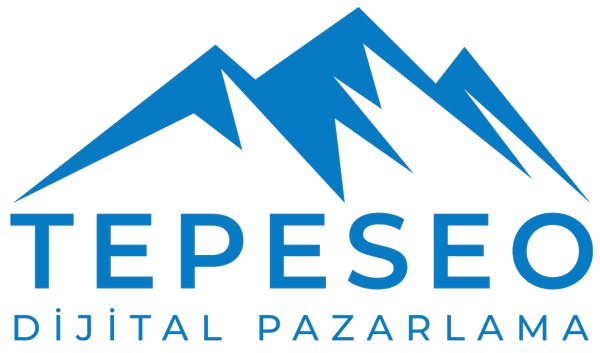Hosting Glossary
Sites on the Internet are built on a region. We can think of this area as an empty land. Hosting on this empty virtual land 
Computers of this style are more equipped and have more features than the computers used in the home or office we know. These computers, or rather machines, are hosted in places we call data centers or datacenters. Datacenters have very high-speed internet connection and are durable, so there is no power outage, earthquake, etc. It also maintains its resilience against natural disasters that have devastating effects. This indicates that our hosting site will always be open to online access. Without having a hosting account, we may not be able to publish our site on the web.
If we take a closer look at hosting terms and their meanings, we can understand better;
Addon Domain: The additional domain that can be added from the control panel is called Addon Domain. In Addon Domain, functions such as creating an e-mail address and hosting can be done like the main domain.
Domain Parking: When the registration of the domain name is completed, the domain name means parking. The domain name is not associated with a service such as e-mail or website. In order to use this domain name in the future, parking is done.
Domain Name Privacy: For websites with a domain name, the process of purchasing the privacy of the domain name is called. It is usually provided by domain registrars with the service of hiding and redirecting information under WHOIS records.
Domain Name Registrar: When a domain name is purchased, the registration process must be completed for the domain name to be linked to the IP address. .com, .in, .net, .tr etc. The organizations that have the authority to register the domain name together with the extensions are called.
Apache Web Server: Apache is an open source, free, stable and advanced web server that is frequently used by web hosting service providers. It presents web contents to users via web browsers.
Cloud Hosting: We can say that it is a cluster of servers that allows data to be stored virtually in the cloud. Cloud servers provide the purchasing process and are also used for comprehensive software development and business requirement fulfillment processes. It has a system of scaling resources up or down in real time according to the needs of websites or applications. The cloud server owner can access their data anytime, anywhere.
Band width: It is the measure of data that can be transferred on the Internet in a certain timeline during the data transfer process such as visitors to websites, browsing, file downloads and uploads.
Bandwidth: It is the rate of data transfer allowed to a site on a monthly basis. Factors such as the number of visitors to the website, the pages visitors navigate, and the size of the files on the pages are taken into account.
Cloud Hosting: It is a hosting service where a website is hosted on a cloud server that can be accessed on the internet.
Cloudlet: It is a small-scale cloud data center developed in the mobile space. It provides high access time to mobile devices and supports interactive mobile applications by providing powerful computing resource.
CMS: It means Content Management System. CMS is a system that manages content and runs in the background. With CMS, content can be sent to websites and new themes can be added.
CPU: It is the central processor of the computer where all activities are performed.
cPanel: It is a control panel used with Linux-based web hosting services. It provides an effective website management as it has a structure that ensures the user experience is positively affected. CPanel supports the management of databases and files of websites.
Cron Job: It is a job description. It is run at regular intervals. Cron jobs are configured via a command line and the execution process begins.
Dedicated Hosting: It is a hosting service where a website has a single physical server used by everything it contains. With this method, a physical server can be rented. The user can have full control over the server and all server resources are managed by a single user.
Domain: It is the name of a website that makes it accessible on the Internet. For example, at “www.tepeseo.com” the domain name is Tepeseo.com. Domain names are often sold with hosting services.
Disk Space: It is called the storage area of a website.
Database: Websites usually use a database system, which stores and manages the data required for websites.
Dedicated IP: It is the unique IP given to only one website.
Domain Name Server (DNS): It is used to mean Domain Name Server. It translates domain names into IP (internet protocol) addresses. However, users can access a website using the IP address instead of the domain name.
DDOS Attack: It is used to mean a Denial of Service Attack. It is a cyber attack that is used to target a single system and aims to severely restrict the use of network resources of the computer.
Domain Keys Identified Mail (DKIM): It is a system that verifies whether incoming e-mails are actually from the sender seen and examines whether the e-mail has been changed during transmission.
Domain Aliases: Also known as an alias. A site owner also takes other domains that are similar to the one they originally used and points them all to the same website.
Email Addresses: In hosting services, a certain amount of e-mail addresses are usually registered.
File Transfer Protocol (FTP): It is a protocol system that allows files to be transferred between different computers.
IP Address: It is the address that allows a computer to be identified on the Internet. For example, like “193.157.0.1”.
Control Panel: It is a panel offered to site owners by web hosting companies for the management of web hosting accounts and web sites. It provides the management of hosting services from a single place. It is web-based.
Managed Hosting: It is the type of service that hosting companies undertake to manage their customers' websites as well as providing hosting services to their customers.
Reseller Hosting: It is a type of hosting service where hosting companies can offer hosting services to their customers as well as hosting services to their customers.
SSL Certificate: It is called the security certificate of websites. It ensures that the data coming to the website is encrypted and sent.
Server: The computer on which a website is run and stored.
Shared Hosting: It is a type of hosting service where different websites are hosted on the same server and these websites share their resources, usually for organizations with sub-brands and more than one website.
Traffic: It refers to the average number of users visiting a site per month. Hosting services for websites usually include a certain amount of traffic.
Scanner: A client application that decodes HTML from a web server and displays it as a readable web page is called a web browser.
Uptime: It refers to the amount of time a website is up and running.
Database: It is an information storage system. Different types of data are organized, stored in the database and can be stored in rows, columns, tables. This data is easy to access, manage and update.
Data Center: Web hosting is a facility that physically hosts servers.
VPS Hosting: It is called hosting service where a website has its own virtual server.






 previous Post
previous Post Next Post
Next Post



